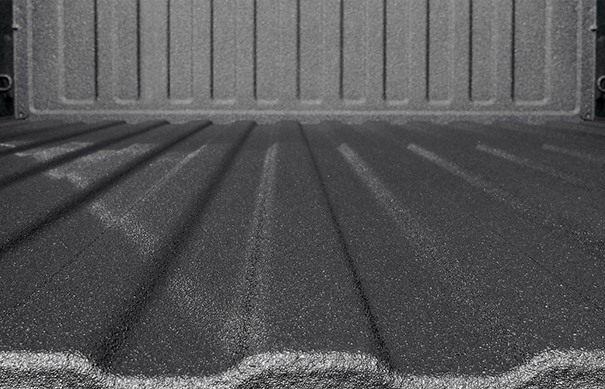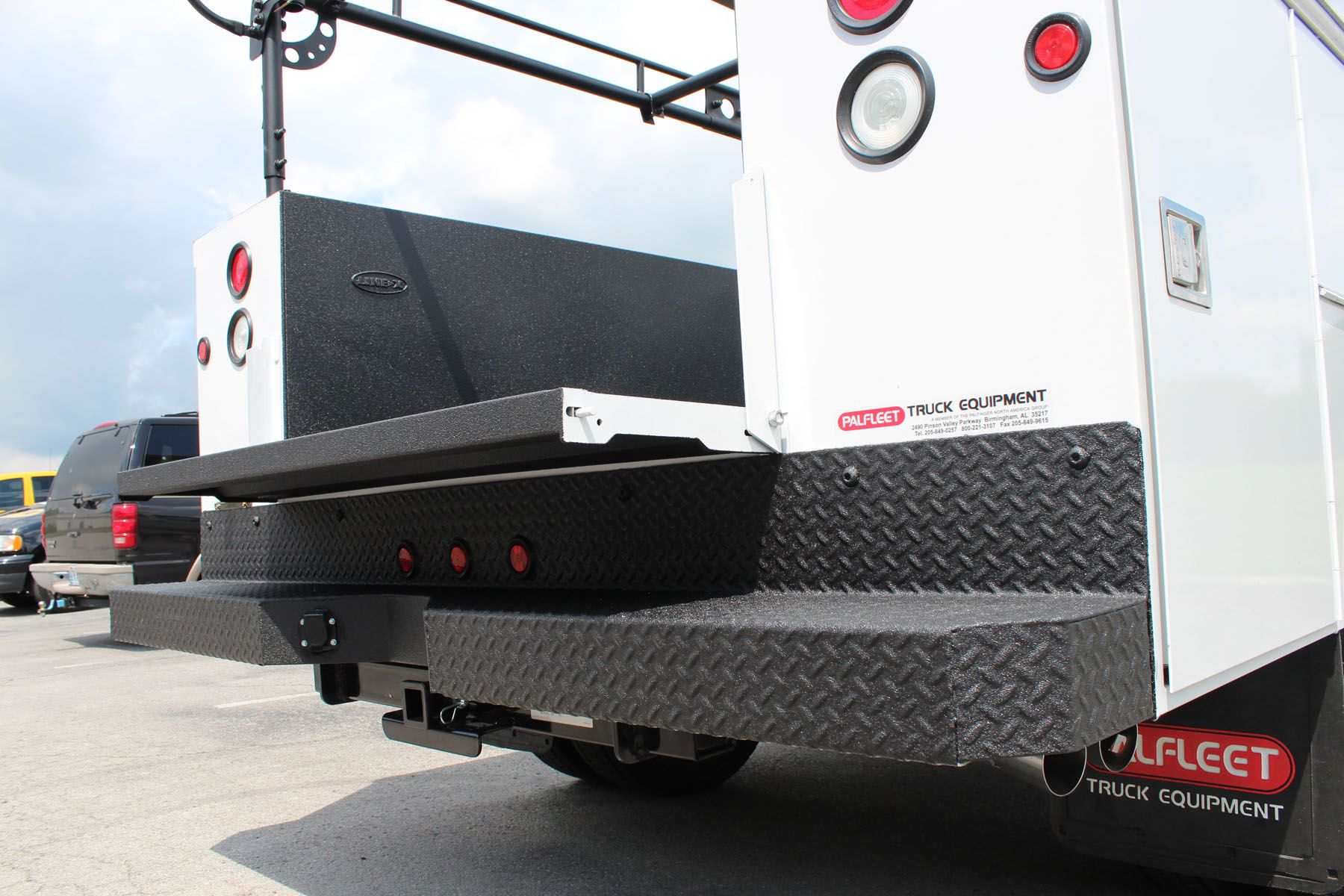Operating a truck fleet is inherently risky. But when you and your employees understand the hazards and know how to confront them, you can create a formula for a safer, more efficient fleet with fewer accidents, fines and breakdowns. Here are six areas and solutions to reduce accidents surrounding work and service trucks.
Risks
- Neglecting tire and other vehicle maintenance
- Unsecured/improperly secured tools and equipment
- Slips and falls from the vehicle or in the truck body
- Poor truck/trailer connections
- Defective braking systems
- Inappropriately placed truck-body access points
1 - Neglecting tire and other vehicle maintenance
Risk: Vehicle upkeep is critical to safety. Tires alone have a huge impact. According to a National Highway Traffic Safety Administration survey, tire issues ranging from under-inflation to blowouts are an underlying factor in 9 percent of crashes.
Solution: Put vehicles and trailers on manufacturer-recommended preventive maintenance schedules. Train employees to properly conduct pre-trip inspections of vehicles and trailers and promptly notify a supervisor of any defects. A telematics system with onboard engine diagnostics can help you keep track of when preventive maintenance tasks are due, identify problems before they become major and record service details.
2 - Unsecured/improperly secured tools and equipment
Risk: If equipment, tools, and materials are not properly secured and covered during transportation, serious incidents can occur.
Solution: Make sure employees know how to tie down, secure correctly and/or cover equipment, tools, chemicals, materials and any other cargo. Also, train them to balance and stabilize loads.
3 - Slips and falls from the vehicle or in the truck body
Risk: Slips might sound like minor incidents, but they can result in significant injuries, including broken bones, sprains, back injuries and concussions. Maneuvering in and around a work or service truck presents slip hazards, especially in wet conditions.
Did you know? Falls, slips, and trips accounted for 17% of occupational injuries across industries. - U.S. Bureau of Labor Statistics
Solution: Consider adding a spray-on, slip-resistant protective coating such as those offered by LINE-X to your truck beds and other surfaces where employees step. Not only will this reduce the risk of slips and falls, but it will guard your investments against corrosion, abrasion and impacts. When spec'ing your trucks, avoid excessively high step-up heights and provide adequate hand grabs to allow the operator to maintain three-point contact while accessing the body or cab. Teach workers not to jump on or off vehicles or trailers. Require them to wear boots or shoes with slip-resistant soles to keep them free of grease, oil and mud.
4 - Poor truck/trailer connections
Risk: Serious accidents have resulted when trucks and trailers weren't properly connected. If the truck hitch ball isn't the right size for the trailer, going over a few bumps could cause the two to separate.
Solution: Teach employees to check the hitch and ball to make sure they are properly matched and secured. Information on correct hitch size is stamped on the trailer tongue. To ensure a trailer is securely hitched, lift the trailer tongue to see if it remains attached. If the trailer and its cargo are too heavy for this, use a tongue jack. Also connect the trailer and tow vehicle with two safety chains.
In addition to offering spray-on protective coatings for slip-resistance, LINE-X locations also carry many truck accessories like balls and hitches. LINE-X stores can be a one-stop-shop for fleet vehicle upfit services.
5 - Defective braking systems
Risk: Lack of maintenance and hot temperatures/roadways can cause brakes to fail, and loss of braking ability is almost certain to lead to an accident.
Solution: Properly maintain braking systems and replace parts when needed. Train drivers to check brakes often and always do a test stop before getting out on the road. Also teach them to test trailer-breaking systems before towing. Check with your state department of transportation to find out when trailer brakes and breakaway systems (which activate trailer brakes if a trailer disconnects from its tow vehicle) must be used. Most states require these things for trailers over certain gross vehicle weights. Trailer brakes and breakaway systems can keep an unhitched trailer under better control and prevent it from causing the tow vehicle to have an accident.
6 - Inappropriately placed truck-body access points
Risk: This presents unnecessary safety hazards while also being inefficient.
Solution: For trucks that will operate primarily in urban areas, spec access points to the rear or curbside of the vehicle to avoid traffic exposure. For vehicles intended for off-road environments, place the primary access point as close to the driver's compartment as possible so the driver won't be tempted to access the bed some other (unsafe) way.
Most service truck accidents can be prevented with well spec'd and well-maintained equipment and concentrated effort to train workers for safety.
For more information about LINE-X fleet services, please call 844-803-4909 or contact us here. Eliminate work truck risks by calling LINE-X today!



 English
English
 French Canadian
French Canadian





